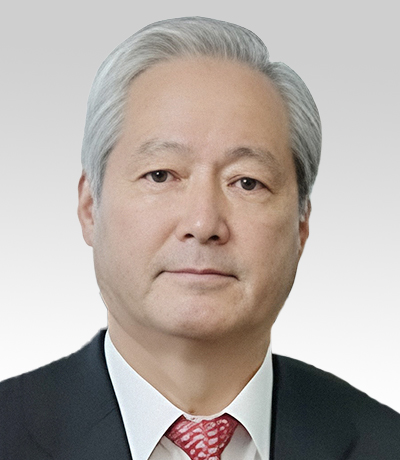
Daisuke Kotegawa
After joining the Ministry of Finance of Japan, Mr. Daisuke Kotegawa undertook measures to deal with the financial crisis that has plagued Japan since the late 1990s. He was in charge of the liquidation of Sanyo Securities Co., Ltd. and Yamaichi Securities Co., Ltd. as the Director of the Securities Business Division of the Ministry of Finance. He was also in charge of the partial nationalization of The Long-Term Credit Bank of Japan, Ltd. and The Nippon Credit Bank, Ltd. as the Director of the Financial Supervisory Agency of Japan. Subsequently, he established the revitalization fund for Development Bank of Japan, Inc. and the Industrial Revitalization Corporation of Japan.
He was involved in numerous international negotiations, including those relating to the World Bank’s capital increase that pushed Japan’s position from the 5th place to the 2nd place, the [US/Japan] Yen-Dollar Committee, the structural reform talks, the WTO financial service negotiations, the US/Japan Structural Impediments Initiative, and the establishment of the OECD transfer pricing taxation guidelines. As the Vice Chairman of the OECD Tax Committee, he organized the “Harmful Tax Competition” Committee, which is responsible for the creation of a blacklist. He also held other important positions at the Minister’s Secretariat, the Budget Bureau (responsible for Ministry of Foreign Affairs and Economic Cooperation), the Tax Bureau, the Financial Bureau, and the International Bureau in the Ministry of Finance.
He also tackled the global financial crises after the collapse of Lehman Brothers as Japan’s Representative Director of IMF. In particular, he chaired the final meeting for the New Arrangements to Borrowing (NAB), which led to an agreement for a $600 billion increase of IMF resources.
He has lectured at Harvard Business School, Thammasat University Graduate School of Economics, and Lee Kuan Yew Business School, among others.
As a member of the Board of Directors, we expect Mr. Kotegawa to contribute to Fujitec's long-term sustainable growth by using his world-class international experience and outstanding practical skills across the areas of finance, business revitalization, and corporate management.
In addition, Mr. Kotegawa is fluent in Japanese and English, as well as Russian and German.
Detailed Biography
| Apr. 1975 | Joined Ministry of Finance |
| Jun. 1979 | MBA from Stanford University Graduate School of Business |
| Jun. 1996 | Director of Security Business Division, Securities Bureau, Ministry of. Finance |
| Jun. 1998 | Director of Supervisory Coordination Division, Financial Supervisory Agency |
| Jul. 2003 | Deputy Director-General, Minister’s Secretariat |
| Jul. 2005 | Director of Kanto Regional Finance Bureau, Ministry of Finance |
| Jul. 2006 | Deputy Manager of Financial Bureau, Ministry of Finance |
| Jul. 2007 | Representative Director of Japan to the IMF |
| Feb. 2011 | Research Director of The Canon Institute for Global Studies |
| May 2011 | Outside Director of Parco Co., Ltd. |
| Apr. 2012 | Outside Corporate Auditor of Stream Co., Ltd. |
| May 2012 | Outside Director of SEKIDO CO., LTD. (to present) |
| May 2013 | Outside Director of ICHIGO HOLDINGS CO., LTD. |
| Apr. 2018 | Outside Director of Stream Co., Ltd. (to present) |
| Jan. 2019 | Outside Director of Tsuneishi Holdings Corporation (to present) |
| Apr. 2020 | Chairman & President of Oita Prefectural College of Arts and Culture |
Message
Message
Throughout my career, I have fostered trusted relationships with government officials, central banks, and business leaders across the globe. My proficiency in multiple languages, including Japanese, English, German, and Russian, coupled with a deep understanding of various cultures and perspectives, has enabled me to contribute significantly to international economic development. I am confident that these skills will prove invaluable as Fujitec expands into international markets.
As a staunch advocate of global financial regulations, I cannot stand idly by while individuals with a history of legal transgressions in overseas markets attempt to seize control of companies under the guise of "governance" and "returning profit to shareholders."
If we fail to halt the unscrupulous actions of individuals who exploit the absence of regulations, Japanese companies with significant share ownership by these actors will face severe consequences. Companies may be sacrificed in succession or be driven to go private, both of which would negatively impact the livelihoods of our citizens. It is imperative that we address this issue promptly and safeguard the stability of our nation's businesses and the well-being of the people.
I am honoured to be considered for election to the Board of Fujitec, and assure you that if elected I will act in the collective interests of all shareholders, as well as customers, employees and the Japanese community.
